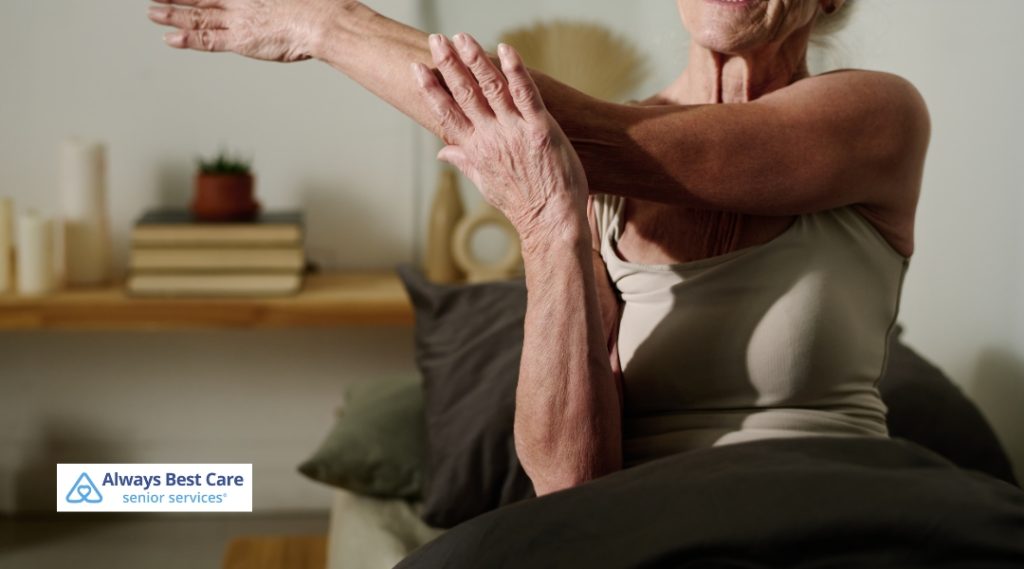Better Sleep for Seniors: 6 Ways to Manage Insomnia in Tempe, AZ

In the warm, sun-filled days of Tempe, restful nights should be just as peaceful. Yet for many local seniors, insomnia makes sleep feel like an ongoing battle. Whether it’s trouble falling asleep, waking too early, or lying awake in the middle of the night, disrupted sleep can affect energy, mood, and overall health.
The good news? Insomnia isn’t something you have to accept as part of aging. With a few thoughtful changes and the proper support, including help from our trusted in-home care providers, seniors in Tempe can take meaningful steps toward sleeping more soundly and waking up feeling refreshed.
Table of Contents
Why Sleep Becomes a Challenge for Seniors
As we grow older, sleep often becomes less predictable, and for many seniors, that means more frequent wake-ups, trouble falling asleep, or feeling unrefreshed in the morning. These changes aren’t just frustrating; they’re a natural part of how the body and mind evolve with age.
One key factor is the natural shift in circadian rhythms, which can cause older adults to feel sleepy earlier in the evening and wake earlier in the morning. At the same time, the body produces less melatonin, the hormone that signals it’s time to rest, making it harder to stay asleep through the night.
Physical health also plays a role. Conditions like arthritis, heart disease, or respiratory issues can cause discomfort or interruptions. Frequent trips to the bathroom, often due to age-related changes or side effects of medications, can further disrupt sleep. Mental and emotional well-being matters, too. Loneliness, anxiety, or even past grief can surface at night when the world is quiet, making it challenging to unwind fully.

1. Stick to a Consistent Sleep Schedule
A steady routine is one of the most effective ways to improve sleep, especially for seniors. Going to bed and waking up at the same time each day helps train your body’s internal clock, making it easier to fall asleep naturally and wake feeling refreshed.
Irregular bedtimes, long naps, or sleeping in on weekends can disrupt this rhythm, leading to more restless nights. Establishing a relaxing pre-bed ritual, such as reading, listening to soothing music, or taking a warm bath, can also help signal to your body that it’s time to wind down. Over time, this consistency creates a dependable foundation for deeper, more restful sleep.
2. Create a Sleep-Friendly Environment
Your bedroom should be a calm and quiet retreat that promotes sleep. A cool temperature, soft lighting, and minimal noise make a big difference. Consider using blackout curtains, a fan, or a white noise machine, along with supportive bedding, to create a peaceful atmosphere.
For seniors, comfort and safety go hand in hand—clear pathways, nightlights, and a well-positioned bed can reduce anxiety and prevent nighttime accidents. Reducing screen time before bed is also key, as the blue light from phones and TVs can interfere with melatonin production.

3. Adjust Your Diet to Support Better Rest
What you eat—and when—can impact how well you sleep. Heavy or spicy meals late at night may cause discomfort, while caffeine and sugar can leave you feeling wired long after bedtime. Even alcohol, which might initially make you sleepy, can disrupt your sleep cycle later in the night.
Instead, aim for light, nutritious meals in the evening and try to stop eating two to three hours before bed. If you need a snack, choose something gentle on the stomach, like a banana, a few almonds, or a small cup of warm milk. These small changes can help your body settle into rest mode more easily—and stay there throughout the night.
4. Get Moving During the Day
Staying active during the day is one of the best ways to promote better sleep at night. Regular movement helps regulate your internal clock, reduces stress, and eases aches and pains that can interfere with sleep. Even light activity, such as walking, stretching, or gardening, can make a meaningful difference.
For seniors, exercise doesn’t have to be intense to be effective. The goal is to stay consistently active, ideally in the morning, as evening workouts can be too stimulating. Physical activity not only promotes deeper sleep but also improves mood and overall health, setting the stage for a more restful night.

5. Manage Stress Before Bedtime
Stress and worry don’t always disappear when the lights go out—in fact, they often become more noticeable. Racing thoughts, anxiety, or emotional restlessness can keep you awake and make it difficult to settle into sleep.
That’s why creating a soothing pre-bed routine is so important. Activities like deep breathing, meditation, gentle stretching, or simply enjoying a quiet moment with a book can help calm the mind. Keeping a journal or practicing gratitude can also ease emotional tension.
6. Talk to Your Doctor About Medications
Many seniors take multiple prescriptions, and some of those medications, especially for blood pressure, asthma, or depression, can have side effects that interfere with sleep. Diuretics may cause frequent trips to the bathroom, while stimulants or certain antidepressants can make it harder to fall or stay asleep.
Even over-the-counter remedies may have unexpected effects. If you’re struggling with sleep, it’s worth reviewing your medications with your doctor or pharmacist. Adjusting the timing, switching to a different prescription, or eliminating a non-essential drug could make a noticeable difference.

How In-Home Care Can Support Better Sleep
In-home care provides personalized support that helps seniors feel more comfortable, secure, and relaxed—key ingredients for restful sleep.
Caregivers help establish and maintain calming bedtime routines, from preparing a light evening snack to assisting with bathing, changing into comfortable sleepwear, and creating a peaceful bedroom environment. They can also gently encourage consistency in sleep and wake times, which is essential for regulating the body’s natural rhythms.
For seniors who wake frequently, in-home caregivers offer reassurance and immediate assistance, helping with mobility, medication reminders, or simply being a calming presence during the night. This not only improves sleep quality but also reduces nighttime anxiety and the risk of falls or disorientation.
Caregivers play a vital role during the day by supporting physical activity, preparing nutritious meals, and helping monitor medication schedules—all of which contribute to better rest at night.
With the compassionate care provided by Always Best Care, seniors can experience greater peace of mind and the comfort of knowing they’re supported, day and night, leading to deeper, more restorative sleep and brighter mornings ahead.
Consider the Benefits of In-Home Care in Tempe
At Always Best Care of Tempe, we understand the challenges that come with aging, including sleep difficulties. Our compassionate caregivers can help establish a calming nighttime routine, assist with daily activities, and provide companionship to reduce stress and promote relaxation.
If you or a loved one is struggling with insomnia and needs extra support, we are here to help. Contact Always Best Care of Tempe at (480) 676-1446 to schedule a care consultation and learn how our in-home care services can improve your quality of life. A restful night’s sleep is just a call away.





